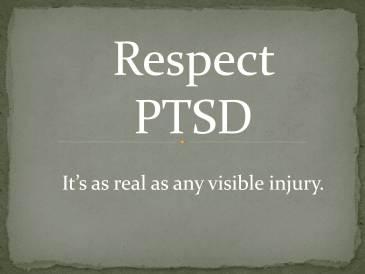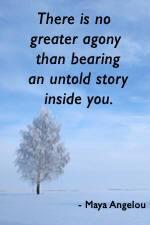
PTSD makes communication difficult. Many survivors can’t find the words to express what they’re feeling. Even when they do, it’s very normal for them not to be comfortable sharing their experience. Elements of shame, fear, anger, guilt and grief often get in the way of a calm, focused discussion. After trauma we want to believe —as do you—that life can return to the way it was, that we can continue as who we were. This is not how it works. Trauma leaves a huge and indelible impact on the soul. It is not possible to endure trauma and not experience a psychic shift. From the outside it’s easy to imagine a certain amount of time passes and memories fade and trauma gets relegated to the history of a life. Unfortunately, with PTSD nothing fades. Our bodies will not let us forget. Because of recurring memories, we cannot walk away from the past. Friends and family standing by us while attempting to heal will need help trying to understand. Armed with knowledge, insight and awareness you’ll have an easier time knowing how to react, respond and relate to your PTSD loved one during the healing process. The more you appreciate things from the PTSD perspective the more helpful and supportive you can be. Now is the time for empathy, compassion and patience.
Here are some websites that might be able to help you and your family:
http://www.helpguide.org/mental/ptsd-family-help-support.htm
http://www.apa.org/monitor/jan08/helping.aspx
http://www.ptsd.va.gov/public/family/helping-family-member.asp
http://casapalmera.com/ways-to-support-someone-with-post-traumatic-stress-disorder/

“When we feel weak, we drop our heads on the shoulders of others. Don’t get mad when someone does that. Be honored. For that person trusted you enough to, even if subtly, ask you for help.”
― Lori Goodwin




